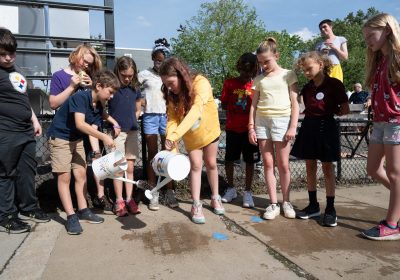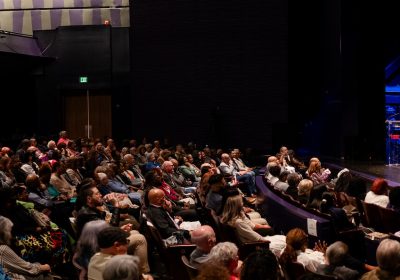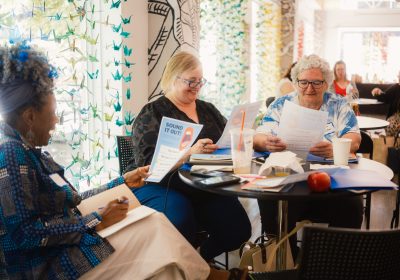PA Humanities’ new cohort will help create welcoming, sustainable spaces and youth leadership.
By Karen Price
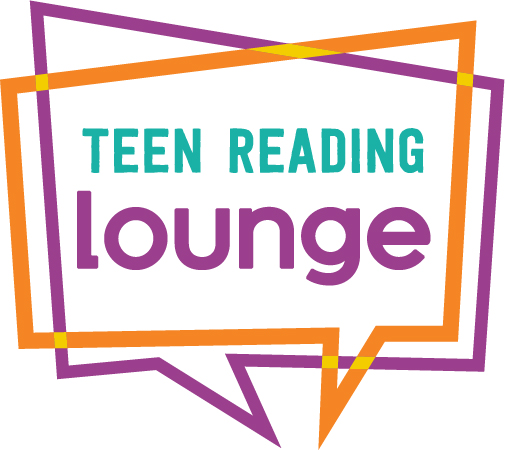
For more than 11 years, PA Humanities has encouraged young people to use the humanities to learn about themselves and the world around them, and build their own capacity for leadership through the Teen Reading Lounge (TRL) program.
Now, we’re taking another step in this unconventional, forward-thinking programming with the launch of the Youth-Led Humanities cohort. This pilot program is based on best practices identified through 10 years of TRL research and evaluation and is designed to help libraries and out-of-school-time organizations create sustainable youth-led humanities programming and engagement.
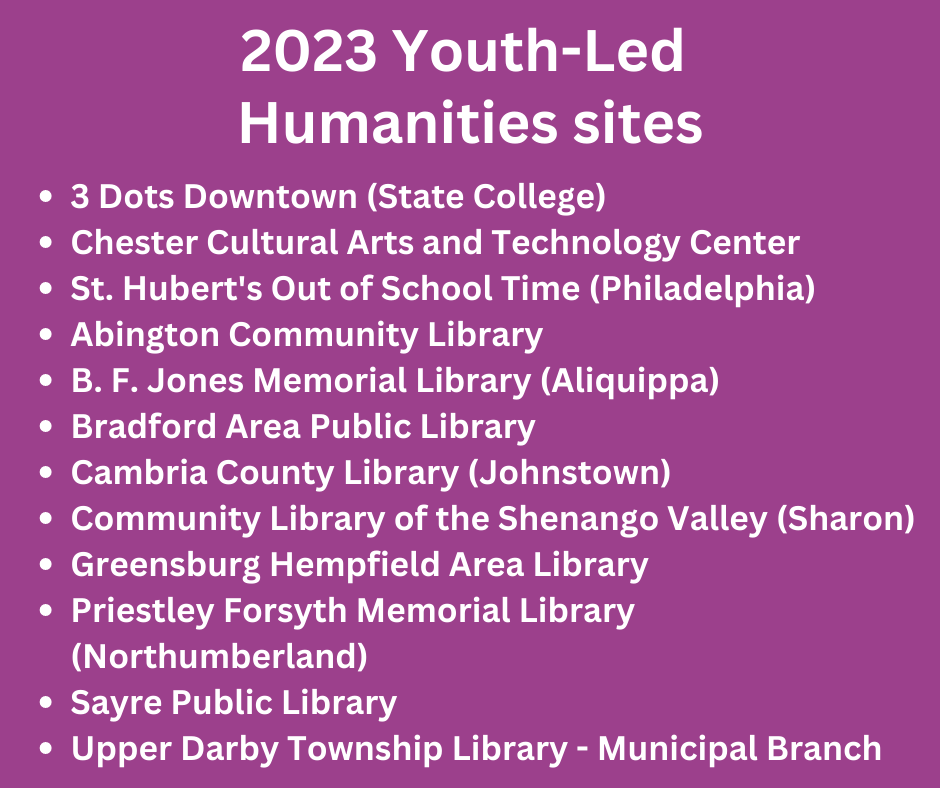
“The Youth-Led Humanities cohort is a more systemic approach to thinking about what makes an organization or a space welcoming and affirming to youth,” said PA Humanities education program officer Julia Terry. “It’s not only focused on programming, but also on the systems that surround young people, from the direct service staff to leadership.”
The cohort consists of nine libraries and three out-of-school-time sites, the majority of which have participated in the original TRL program in the past. Throughout the next year, the goal is to help support these organizations in moving from youth-centered to youth-led programming, to utilize the humanities to engage youth in meaningful ways and build leadership skills, and to build welcoming, affirming and inclusive spaces through training and development.
In addition to receiving $5,000 per site to develop and administer youth-led humanities programming, two to three members from each site will also participate in a bi-monthly community of practice meeting to encourage peer learning and solidarity.
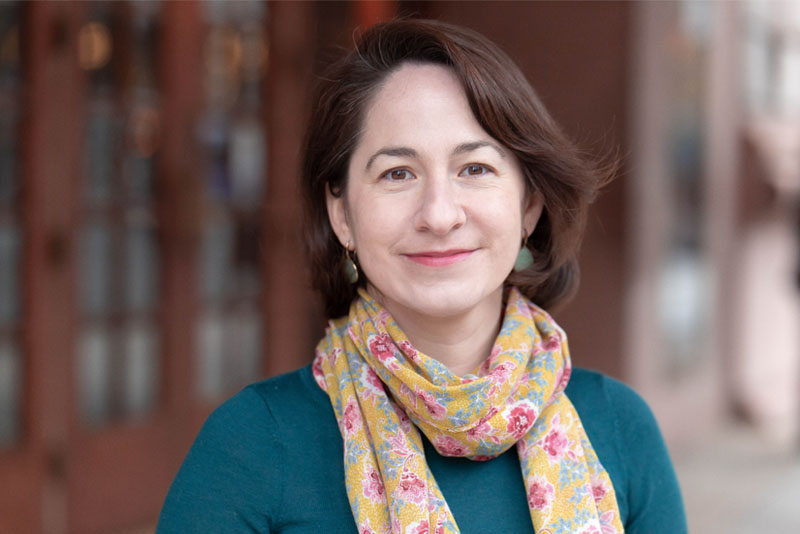
“I think the peer support and peer learning is really key,” Terry said. “Sharing power with young people in this way takes practice and mistake-making and humility, and every site is kind of at a different point on that spectrum. It’s pretty rare that organizations are engaging youth leadership authentically, so I think they can learn a lot from each other by the different approaches they’re taking and have solidarity with the struggles of it.”
PA Humanities will also offer both virtual and in-person professional development opportunities on topics including positive youth development, youth leadership, and civic engagement. These trainings will be grounded in the knowledge gained from the development of TRL 10 years ago, documented in the recently published research report “Teen Reading Lounge: Insights from 10 Years of Participatory Research and Evaluation.” In addition, each site will select one or two young people to participate in a state-wide youth leadership training designed to help build their capacity to use their unique strengths and voice in their communities.
“We’ll have a direct line from young people to PA Humanities, which we haven’t had in the recent past, and can hopefully impact the trajectory of our work going forward,” Terry said.
The classic TRL program will also continue this year, with seven libraries each receiving $3,000. Terry said that they will look for opportunities throughout the course of the year for the two to intersect, giving new sites the chance to interact with veterans of the program.
“We’ve seen that TRL is the seed that gets newer sites to where these youth-led humanities sites are,” she said. “TRL is a catalyst to becoming a more youth-led organization.”
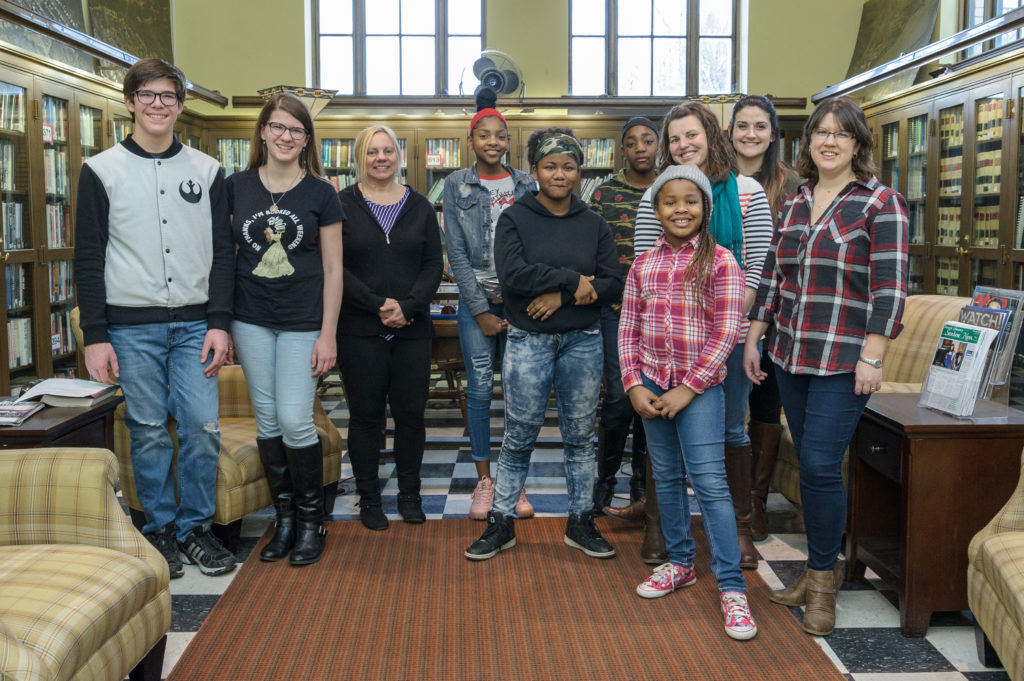
![[color – dark bg] PA SHARP FINAL FILES DB 72dpi [color - dark bg] PA SHARP FINAL FILES DB 72dpi](https://pahumanities.org/uploads/files/elementor/thumbs/color-dark-bg-PA-SHARP-FINAL-FILES-DB-72dpi-phgl7aimtfdpzt2rscvl43ksfv3asbbls19lsvuacw.jpg)
